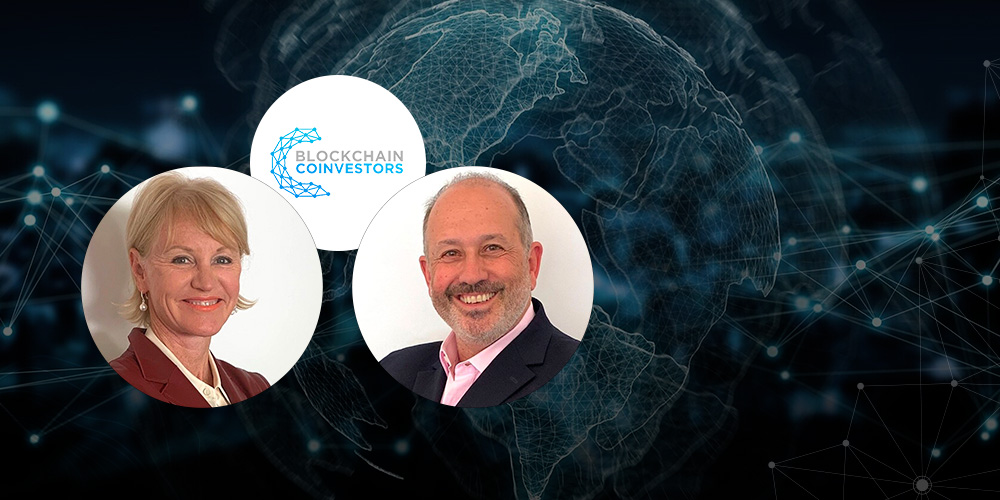
Blockchain Coinvestors co-founders Alison Davis and Matthew Le Merle chat with us about their strategy and approach.
Q: Tell us a bit about Blockchain Coinvestors and your background(s) and role(s)?
A: Launched in 2014, our vision is that digital monies, commodities, and assets are inevitable, and all of the world’s financial infrastructure must be upgraded. Our mission is to provide broad coverage of the emerging unicorns and fastest growth blockchain companies and crypto projects. Our investment strategy is now in its 9th year and has to date, invested in more than 40 pure-play blockchain venture funds in the Americas, Asia, and Europe; and in a combined portfolio of 400+ blockchain and crypto projects, including approximately 55% of all blockchain unicorns. Our funds rank in the top decile amongst all funds in their respective categories on both Pitchbook and Preqin. Headquartered in San Francisco with a presence in Grand Cayman, London, New York, Zug, and Zurich, the alternative investment management firm was co-founded by Alison Davis and Matthew Le Merle.
During their formative years in Silicon Valley, working with McKinsey & Company and A.T. Kearney, Alison and Matthew were a part of the internet revolution and saw firsthand how the emerging technology changed lives and the functioning of society. They came to realize that we are now going through another evolution into an era of unprecedented innovation that includes the digitization of commodities, assets, and monies.
Early in its development, Alison and Matthew embraced Bitcoin and the promise of the underlying, fundamental blockchain technology that made the secure, decentralized, trusted exchange of information accessible to a wider community. The potential of blockchain to resolve issues they were seeing in financial services in regard to the security of data and transactions led them to their own early-stage investments and backing of emerging VCs like Pantera and Blockchain Capital. Over time, they expanded their offerings to include the networks and communities of interested and like-minded investors. Blockchain Coinvestors now has six early and mid-stage funds focused purely on blockchain technology, as well as a comprehensive coinvestment program for their investors. The 7th fund - a Fund of Funds - is opening later in 2023 to current and new investors.
Q: How would you say your approach sets you apart? What types of opportunities do you like to focus on, and how do you originate them?
A: At Blockchain Coinvestors, we focus on early-stage rounds in blockchain companies that are enabling the transition to digital monies, commodities, and assets and which are providing the infrastructure required to upgrade global commerce. We have worked for a decade to create our unique, sustainable competitive advantage in blockchain, web3, and fintech investing. This derives from the fact that we are investors in and have developed relationships with more of the best blockchain, web3 and fintech funds than anyone else - as far as we know. To this, we add a team with more than 100 years of collective investment experience in these sectors. This, in turn, gives us proprietary access and asymmetric information that informs our direct investment opportunities.
Q: Can you tell us more about your strategy?
A: Blockchain Coinvestors has the most diversified early-stage investment platform in the space. We consider our coverage model to be a proprietary advantage that our investors benefit from but which we don't explicitly share. It considers global blockchain startup activity and ensures we gain exposure to the investments of many of the best investors in the space along the following dimensions:
• Geography
• Stage
• Position in the technology stack
• Investment theme
• Equities and tokens
• Other
While the specifics of our coverage model are confidential, we are transparent with regard to the output in terms of manager selection. That selection informs our direct and follow-on investing with this asymmetric information advantage.
Q: How do you see the industry evolving?
A: Digital communications and content do not equal a digital global economy. To get to that, we need digital commerce too. Which requires that we have natively digital monies, commodities, and assets. This, in turn, requires that all of the world's financial infrastructure will need upgrading since it is not fit for purpose. You can't transact in real-time, at negligible cost, on today's infrastructure. Not with money and certainly not as an investor since most of the world's assets are still paper-based.
This is an inevitable truth that underlies the promise and value of blockchain technology to meet the needs of the digital natives.
Digital natives are those born after 1983 who have lived their formative years in a connected world. They don't know anything other than the Internet and the access that it has given them to all of the world's information. For most of their lives, they have lived and breathed online access for their education, entertainment, and now work. They will be the ones driving the future, and they are becoming a powerful and vocal portion of the electorate and they love digital monies, assets, and mobile access. This is what we call a powerful tailwind.
Q: Any parting thoughts?
A: The analytical evidence says that venture capitalists outperform following a downturn, and the best strategy is to heavy up by investing into the downturn. We believe there are four reasons for this outperformance of venture capital:
• Valuations fall, so that venture capitalists get more for their money
• Competition between start-ups declines as there is a flushing out of marginal and bootstrapped players
• Follow-on financing becomes focused on the emerging category leaders backed by the best investors
Less obviously, large enterprises who often represent both large customers of innovation and go-to-market partners and who are the most likely exits for startups through acquisition scale back during turndowns but then find they have to invest and buy to grow during recoveries. They become much more likely to embrace innovation in T+1 and T+2.
For these reasons, seasoned venture capitalists know that they need to invest more capital, not less, when opportunities start surfacing during a downturn - in a selective and disciplined way.
To sum up, we see opportunity now surfacing just as it always does during a downturn. For venture capitalists, the returns are usually higher in the years following a downturn for some very good reasons. We are excited to have the capital to deploy and plan to do so as we get greater clarity on where the best blockchain investors are placing their next round of bets. We look forward to continuing to deliver phenomenal returns to our investors.
To learn more about how TritonLake brings differentiated investment opportunities to our network of sophisticated investors, contact us at hello@tritonlake.com



